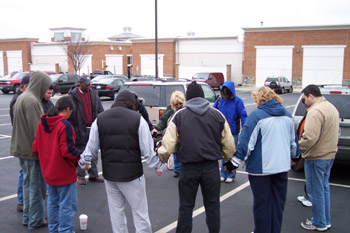After experimenting with Seeker Groups for over a year beginning in 2001, we have discovered that they effectively engage spiritual seekers from all kinds of religious and non-religious backgrounds. We have seen individuals begin a personal relationship with Christ and connect with a healthy church. Additionally, people from diverse backgrounds tend to stay through the entire seven-week series—often wanting more when it ends. That’s why we have developed a next step after Seeker Groups, which is covered later in this packet.
The reason Seeker Groups are effective is that spiritually seeking individuals often have the following felt needs or deep desires:
- They are searching for spiritual purpose and meaning in their lives.
- They long for authentic relationships.
- They generally do not see church as the starting point for their spiritual journey.
- They are open to exploring new spiritual ideas.
- They are receptive to discussing spiritual topics in a group setting.
Seeker Groups are designed to meet all five of these needs. Through hosting multiple Seeker Groups, we have also discovered the following key insights:
- Evangelism is most effective as a process, not just an event.
- Christianity becomes more believable when presented in a relevant and engaging way.
- People are best reached through relationships.
- Spiritual seekers prefer interactive discussions over being lectured.
- People tend to be more open spiritually when they can freely express their thoughts and have their questions addressed honestly.
- A no-pressure environment fosters greater openness and engagement.
In a culture increasingly shaped by postmodern thinking, we must develop evangelism methods that resonate with this reality. Seeker Groups are designed to do just that—creating a welcoming, engaging, and effective space for spiritual seekers to explore faith.



